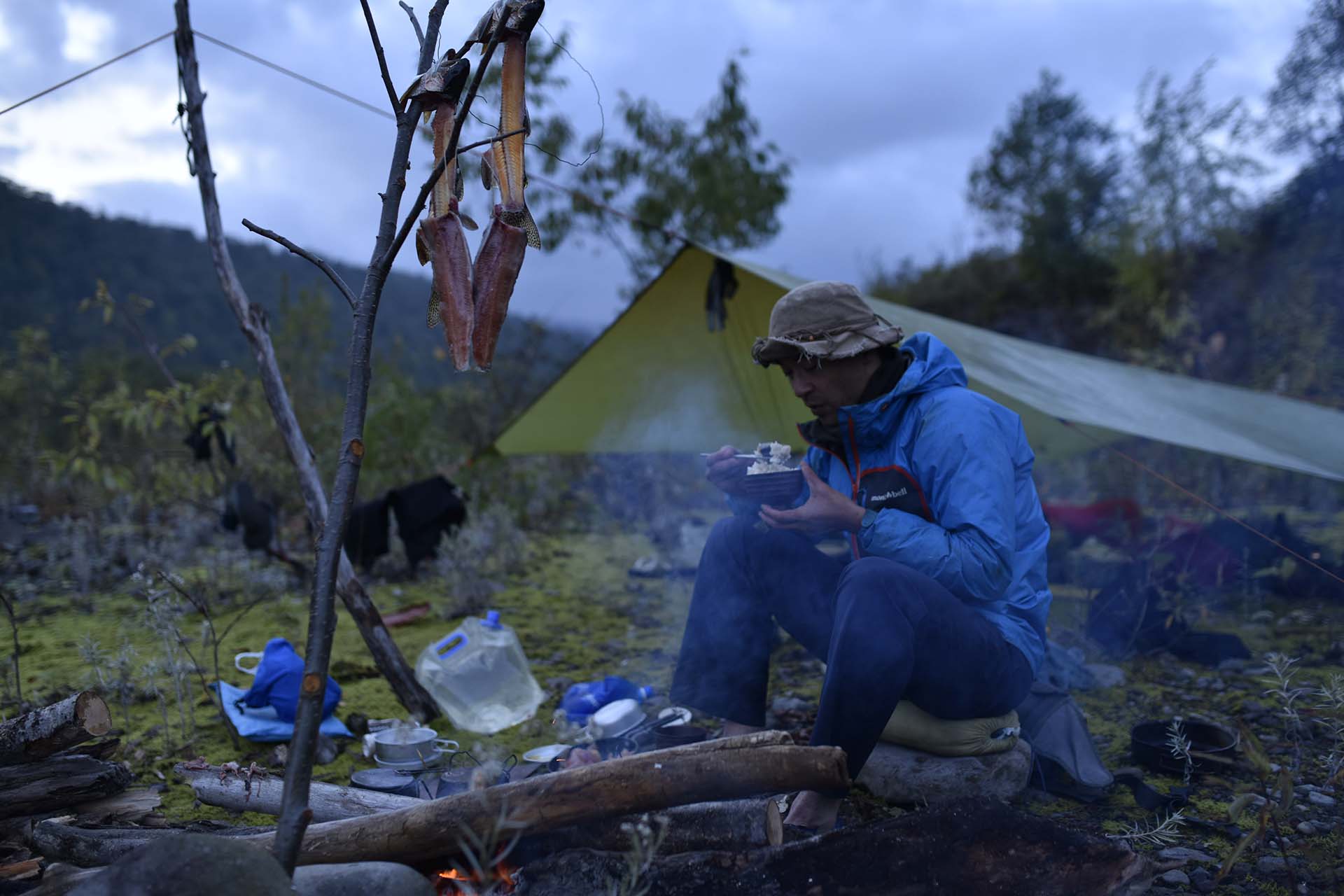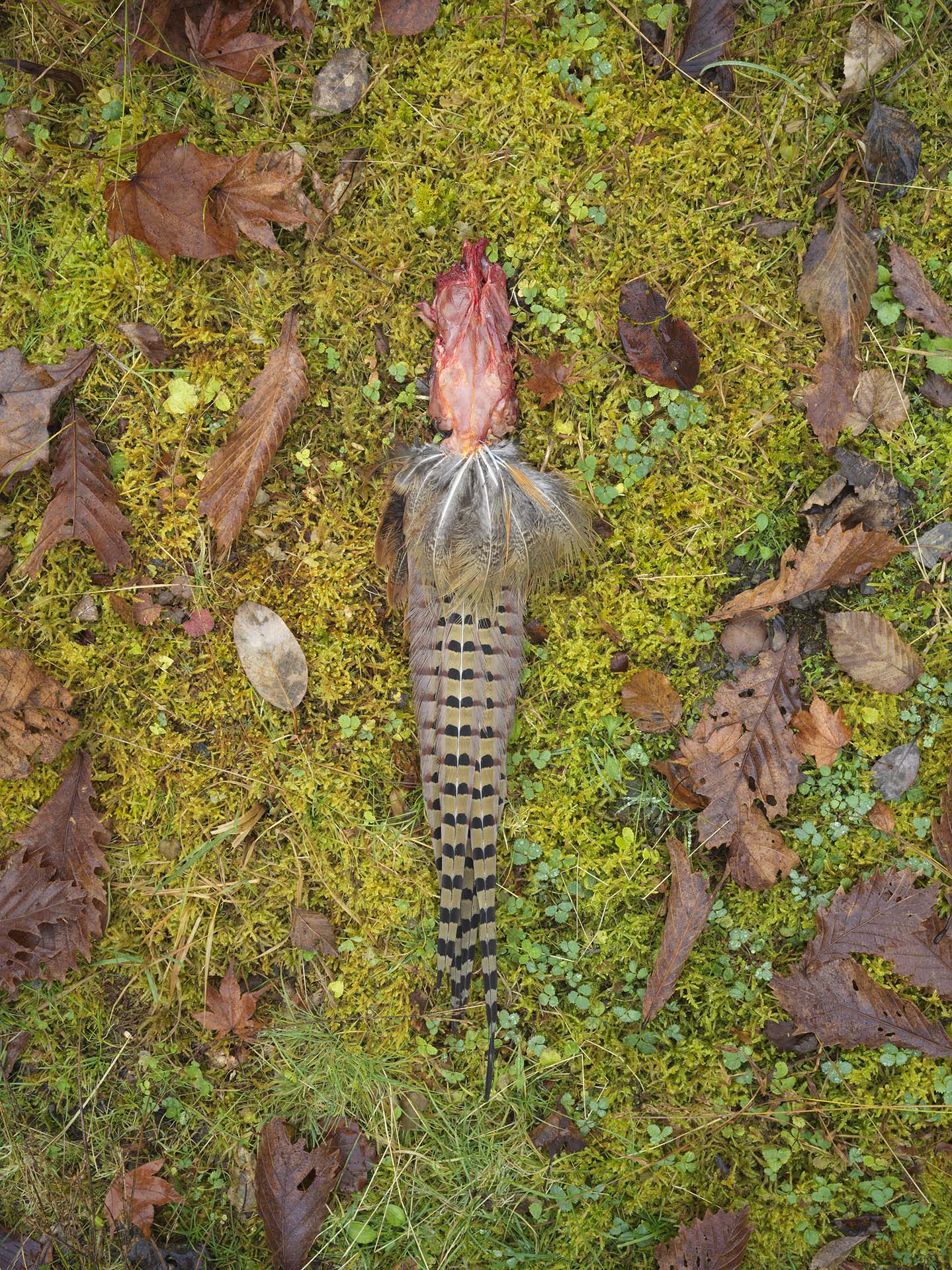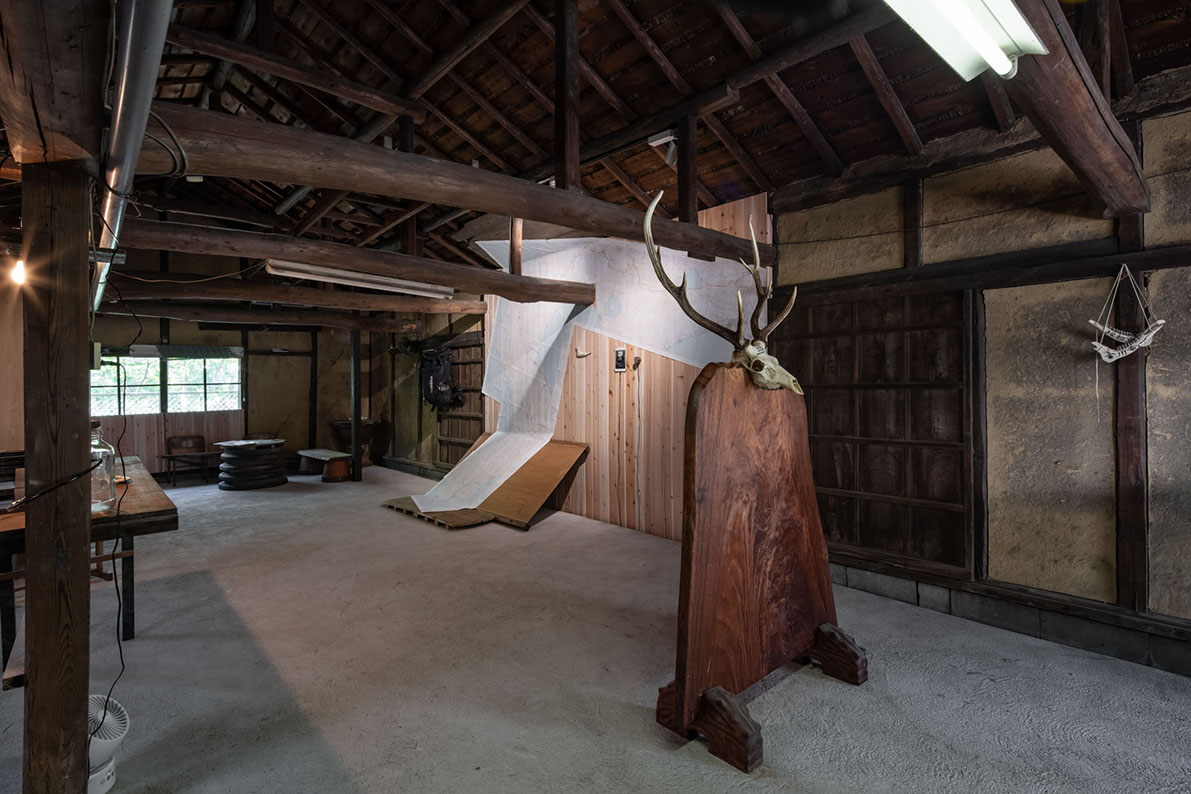ARTISTS
Hattori Bunsho+Ishikawa Ryuichi
TK04
Hattori Bunsho and Ishikawa Ryuichi have been collaborating, mainly on mountain climbing trips, since 2015. Hattori first embarked on hardcore mountain climbing while a student, and, in 1996, he ascended K2 in the Karakoram range. He practices a style of mountain climbing that he dubbed “survival mountain climbing”* after accomplishing feats such as finding a new route for climbing Mt. Tsurugi in Japanʼs Northern Alps during winter. Ishikawa encountered photography while studying at Okinawa International University, and apprenticed under the photographer Yuzaki Tetsushi in 2010. His work received an Honorable Mention at the 35th New Cosmos of Photography awards in 2012, and he won the 40th Kimura Ihei Photography Award in 2015.
The duo teamed up once more and created new works for this art festival based on a month-long trip they took on foot in the southwestern part of Hokkaido from October 9 to November 7, 2021.
On this trip, on which they were accompanied by Hattoriʼs pet dog Natsu, the duo set out from Kikonai, leaving their money and mobile phones behind. Instead, they took hunting guns and no food other than a small amount of rice and condiments. They started out by going south, and then turned north again from Cape Shirakami, the southernmost point of Hokkaido. They passed through Mt. Daisengen, Yakumo, which was settled by members of the samurai class belonging to the Owari Tokugawa family, Mt. Kariba, the highest mountain in the southern part of Hokkaido, and the secluded hot spring Kinkato, until finally reaching Mt. Oshamanbedake.
The show attempts to represent the physical expression they achieved as a ʻtrip,ʼ which was an act that cannot be repeated, by creating an installation that is a composite of elements, including a skull and hides from deer they hunted, photos taken by Ishikawa, and collections of text written by Hattori during their journey, as well as recordings of the sounds made by their open-air fires and of their conversations, and stones collected on the voyage.
Past works produced through collaborations by the duo include Hattoriʼs books Emono Yama (Prey Mountain) (2016) and Emono Yama II (Prey Mountain II) (2019) put out by Kasakura Publishing and Ishikawaʼs photobook The Inside of Life, AKAAKA Art Publishing (2021) and the exhibition Camp (2016; which toured Tokyo, Ishikawa, Osaka, and Okinawa, Japan and Taiwan). Hattoriʼs recent publications include the essay collection You Are What You Read, Honnozasshi (2021) and Survival Kazoku (Survival Family), Chuokoron-Shinsha (2020). Ishikawaʼs recent exhibitions include the Reborn Art Festival 2019 (Miyagi, Japan) and Heroes and People in the Japanese Contemporary Art, Hyogo Prefectural Museum of Art (2019; Japan).
* Survival mountain climbing is a type of mountain climbing in which participants engage in long-term hiking trips in the mountains with minimal money and equipment and live off the land, hunting and fishing.
Hattori Bunsho
- Born 1969 in Kanagawa.
- Based in Kanagawa.
- Selected Works & Awards
-
- 2021
- You Are What You Read
- 2020
- Survival Kazoku (“Survival Family”)
- 2017
- Musuko to Shuryo ni (“Hunting with my Son”), 31st Mishima Yukio Prize
- 2016
- Tundra Survival, 5th Umesao Tadao Literary Prize for Mountain & Exploration
- 1996
- Ascended the K2 in Nepal (8611m)

- Hattori Bunsho, Toppu River at the Masike mountain massif, Hokkaido, 2016
- Photo: Masato Kameda
Ishikawa Ryuichi
- Born 1984 in Okinawa, Japan.
- Based in Okinawa, Japan.
- Selected Works & Awards
-
- 2019
- Reborn Art Festival 2019, Miyagi, Japan
- Oh! Matsuri☆Goto Showa / Heisei Heroes and People in the Japanese Contemporary Art, Hyogo Prefectural Museum of Art, Japan
- 2017
- Nissan Art Award 2017: Exhibition of New Works by Five Finalists, BankART Studio NYK, Kanagawa, Japan
- 2015
- 40th Kimura Ihei Photography Award
- 2012
- 35th New Cosmos of Photography Award

- Ishikawa Ryuichi, Back and Tail of Pheasant, Hokkaido from “The Inside of Life”, 2018
- Courtesy of the artist
Exhibition
THE JOURNEY WITH A GUN, AND NO MONEY, 2022
TK04

- Installation view at Aichi Triennale 2022
- THE JOURNEY WITH A GUN, AND NO MONEY, 2022
- Photo: ToLoLo studio
- Open
- 10:00-17:00
*Last admission 15 min before closing time
- Closed
- Wednesdays
- Venue / Access
- Former Earthenware Pipe Factory (Maruri-Toukan)
- 7 minutes on foot from Tokoname Station on the Meitetsu Nagoya Line / Tokoname Line.


![STILL ALIVE Aichi Triennale 2022, July 30 (Saturday) to October 10 (Monday, public holiday), 2022 [73 days]](/2022/en/img/title-logo-date-en.svg)
